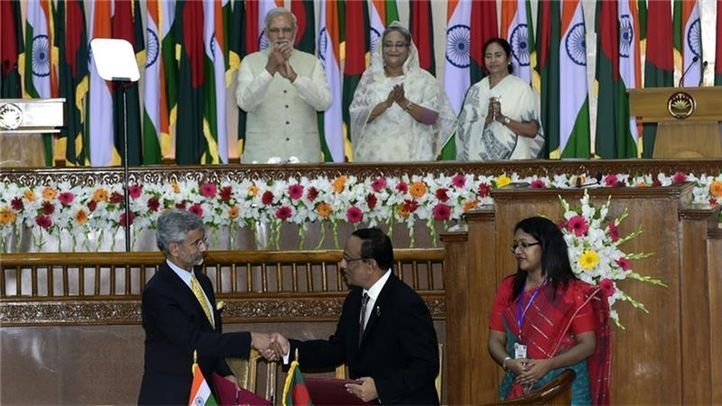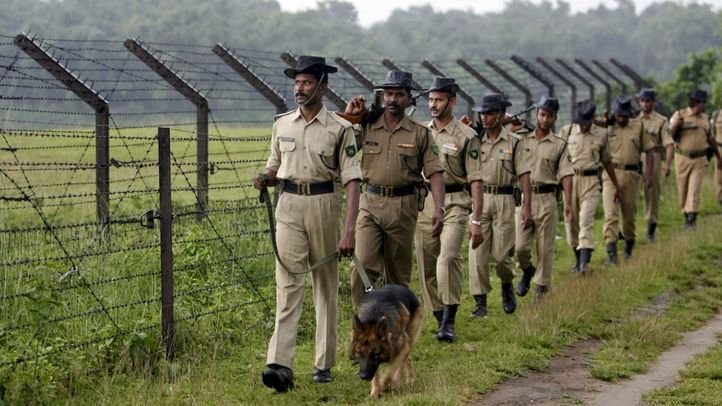Ending more than four decades of wait, India and Bangladesh will start the exchange of 162 adversely-held enclaves from Friday, July 31, marking the start of implementation of their landmark land boundary agreement (LBA).
While India will hand over 51 enclaves, comprising 7,110 acres to Bangladesh, the neighbouring country will give India 111 enclaves comprising around 17,160 acres.
Bangladesh and India will implement the LBA of 1974 and the enabling Protocol of September, 2011, in a phased manner over the next 11 months.

According to an estimate, around 37,000 people are living in Indian enclaves in Bangladesh while 14,000 people are staying in Bangladeshi enclaves in India.
India and Bangladesh have already completed an exercise in July to ascertain the views of the residents in the enclaves whether they would like to take Indian or Bangladeshi citizenship.
No one living in Bangladeshi enclaves in India wants to shift to that country, as per a joint survey. However, an estimated 600 people want to migrate to India.
The Centre has already sanctioned a Rs 3,048 crore package for rehabilitation of the people affected by the exchange of enclaves under the LBA implementation.
Between July 31, 2015 and June 30, 2016, the entire process, including physical exchange of enclaves and land parcels in adverse possession along with boundary demarcation, is expected to be completed.
India and Bangladesh will print, sign at plenipotentiary level and exchange the strip maps of un-demarcated sectors.

Both governments will facilitate “orderly, safe and secure passage” to the enclave dwellers along with their “personal belongings and movable property” to Bangladesh or India through proper “travel documents”, according to a letter exchanged by the two countries.
The passage “will be arranged by the respective governments by November 30, 2015”.
India and Bangladesh have also outlined the modalities of a complex process of settlement of immovable property. The dwellers, who are hoping to move from one enclave to another country as proper citizen for the first time since Independence, will have to provide “details of the records and specifications of immovable property” to the local district administration.
The details will be posted in the public domain by the administrations and the governments will “facilitate remittance of sales proceeds” of the property.
LBA was ratified by Indian Parliament in May.
Read more:
Ending Legacy Of Colonial Rule, India-Bangladesh Sign Historic Land Swap Deal
Parts Of Assam Now Belong To Bangladesh. Rajya Sabha Passes Territory Exchange Bill
Feature image source: ScoopWhoop

















